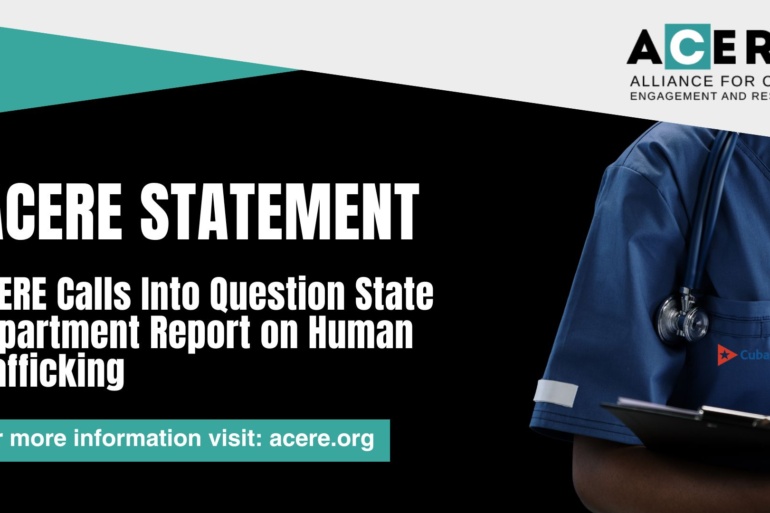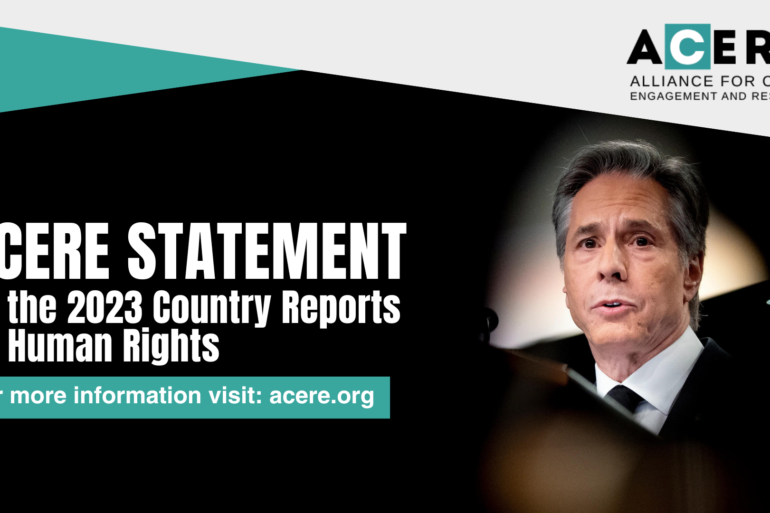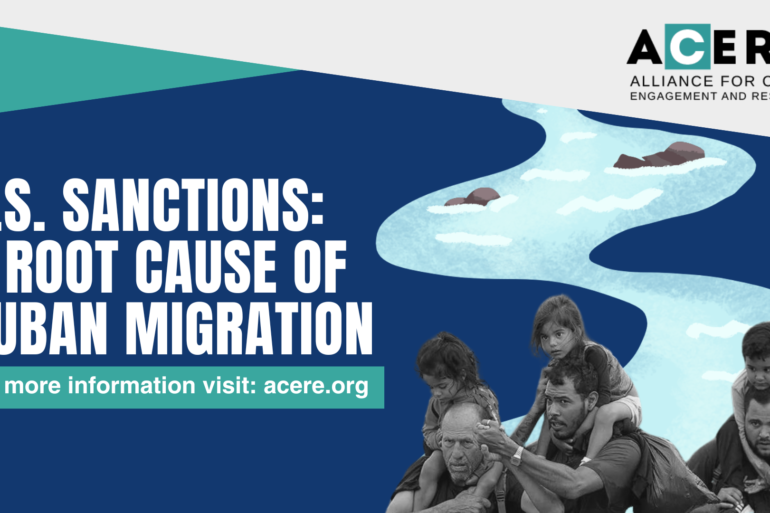U.S. Sanctions: A Root Cause of Cuban Migration
RESOURCES
Nearly 600,000 Cubans have attempted to enter the United States since 2021 – a figure higher than the refugee wave of the early 1960s, the 1980 Mariel boatlift and the 1994 rafter crisis combined. Cubans are leaving due to an economic crisis and challenging humanitarian conditions, including lack of access to well-paying jobs, food, medicine, transportation and electricity. The downturn began with the COVID-19 pandemic, but it was exacerbated by President Trump’s “maximum pressure” policy that saw hundreds of new sanctions – including the state sponsor of terrorism (SSOT) designation – imposed on an already ailing economy, specifically by targeting tourism, remittances and medical cooperation, three of the primary ways Cuba earns foreign currency.
The Biden administration already recognizes that economic sanctions are a “key driver” of Cuban migration, yet has taken virtually no steps to address this root cause.
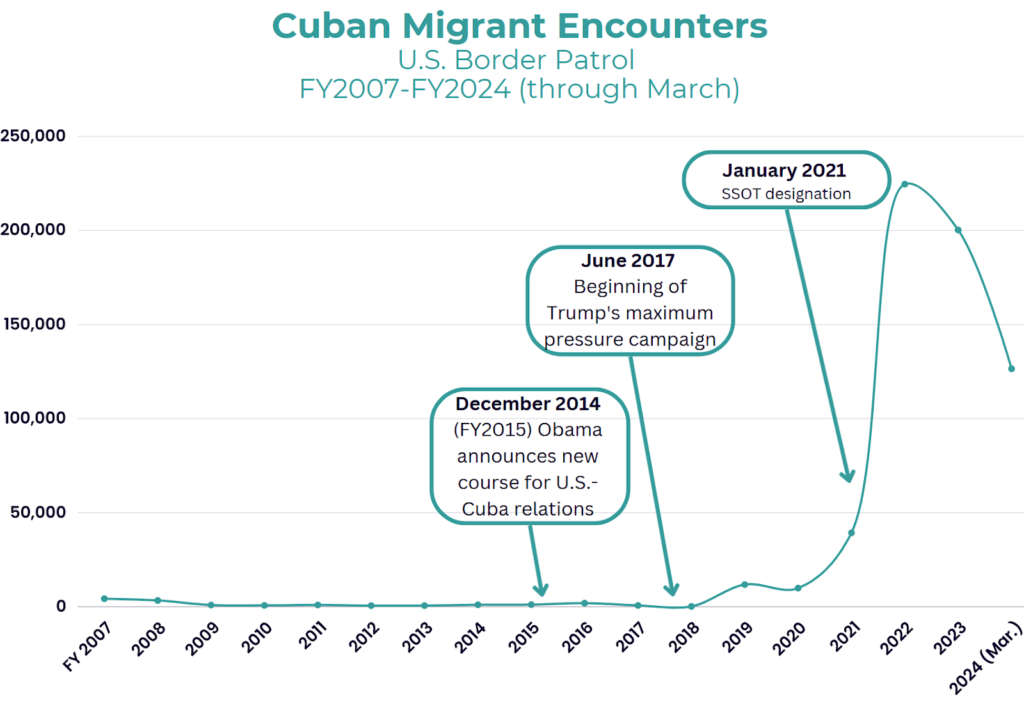
RESOURCES
Biden-Harris Migration Plan
In 2021 the White House announced its strategy for “addressing the root causes” of increased migration from Central America. The Biden administration’s solutions included the following: mobilizing private sector investment, digital and financial inclusion, support for farmers, support for small businesses, job creation and supply chain resilience, access to finance, trade facilitation, and global diplomatic engagement, among others. This strategy “coincided with a 43% reduction” in the number of migrants from the region encountered at the border. Yet when it comes to Cuba, U.S. policy prohibits and actively undermines these approaches to slowing irregular migration. Dozens of members of Congress have written to President Biden (in May 2023, December 2023 and January 2024) and drawn the same conclusion: sanctions on Cuba are driving irregular migration.
In January 2023, the Biden administration added Cuba to the list of countries whose citizens may be eligible for humanitarian parole, issuing more than 86,000 visas to Cubans under this program out of more than 380,000 applications through May 2023. However, despite a brief dip in encounters of Cubans at the border, the program falls woefully short and overall migration trends are unaffected, as border encounters in 2024 are on pace to be even higher than in 2022.
U.S.-Cuba Migration Accord Meetings
The Biden administration should be applauded for restarting semiannual meetings with the Cuban government to discuss the U.S.-Cuba Migration Accords, which had previously been suspended by the Trump administration. Regarding the most recent meeting this April, Ambassador Brian Nichols, Assistant Secretary for Western Hemisphere Affairs tweeted “U.S. and Cuban officials met to discuss the Migration Accords, a well-established migration management mechanism that promotes compliance with U.S. immigration law and lawful pathways.” He failed to mention the role sanctions play in depressing standards of living in Cuba and limiting legal pathways for immigration, incentivizing Cubans to migrate in an irregular manner.
Conversely, the Cuban Foreign Ministry issued a statement in which it said it “emphatically denounced the negative impact that the U.S. economic blockade and its extreme reinforcement applied since 2019, exert on the socioeconomic conditions of the Cuban population, a factor that constitutes an important incentive to migration… [as does] keeping the country on the so-called List of State Sponsors of Terrorism, the preferential treatment still received by Cubans who illegally enter U.S. territory and the validity of the Cuban Adjustment Act.” The Cuban Adjustment Act grants Cuban migrants a fast track to legal permanent residency, food and housing benefits, and immediate employment authorization, all without having to demonstrate persecution to the same extent as asylum seekers. Many also return to Cuba after being granted residency, putting into question how “persecuted” they are.
Other U.S. Policy Factors
The Biden administration has resumed issuing immigrant visa categories and restarted the family reunification program, yet the non-immigrant visa process is still frozen, forcing some Cubans to travel to third countries. This hinders exchanges and cooperation, and counterproductively converts Cuban visitors into Cuban migrants. Furthermore, the SSOT designation makes many Europeans ineligible for U.S. visa waiver under a program called ESTA. This provision also impedes hundreds of thousands of Cubans with dual nationality (mostly Spain) from traveling back and forth between the U.S. and Cuba. Many have instead decided to instead stay in the U.S. and become permanent residents in order to travel to Cuba without restrictions on their returns to the U.S
AMLO Plan
Cuban migration is also affecting Mexico, as the route to the U.S. for most Cuban migrants changed from crossing the strait of Florida to crossing the U.S.-Mexico border. The U.S. has repeatedly pressured Mexican President Andrés Manuel Lopéz Obrador (AMLO) to do more to curb irregular migration. While Mexico stepped up its border enforcement, deportations and cooperation with nations in the region, AMLO proposed a joint plan to reduce migration that includes the U.S. allocating $20 billion in yearly aid to Latin American and Caribbean countries, and an end to the embargo of Cuba.
This isn’t mere rhetoric: in March, Mexico signed an agreement with Venezuela that would see migrants voluntarily return to Venezuela, be guaranteed a job for six months, and receive a $660 stipend. It is unlikely this deal could have been reached without the October 2023 flexibilization of U.S. sanctions on Venezuela. Mexico is in talks to establish similar plans with Colombia and Ecuador. For now, there is no indication that Cuba will be included in the future, likely due to the threat of secondary sanctions against Mexico. Last year, when it was reported that Mexico had become a key provider of oil to Cuba, Senator Marco Rubio called on the Biden administration “to communicate that any attempt by Mexico to circumvent U.S. policy will be met with targeted sanctions.”
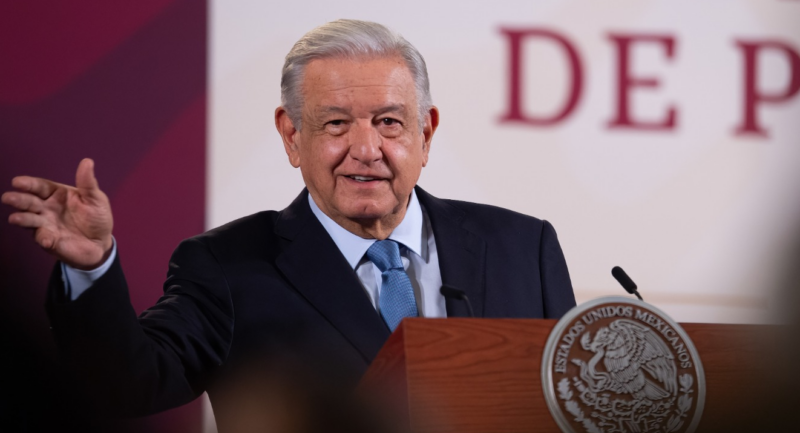

Sources and Further Reading:
U.S. Border Patrol and Office of Field Operations Encounters by Area of Responsibility and Component FY 2021–FY2024 https://www.cbp.gov/newsroom/stats/nationwide-encounters
U.S. Border Patrol Nationwide Apprehensions by Citizenship and Sector FY 2007 – FY 2020 https://www.cbp.gov/sites/default/files/assets/documents/2021-Aug/USBORD~3.PDF
Report on the U.S. Strategy for Addressing the Root Causes of Migration in Central America, White House, April 2022. https://www.whitehouse.gov/briefing-room/statements-releases/2022/04/19/report-on-the-u-s-strategy-for-addressing-the-root-causes-of-migration-in-central-america/
X post by Brian Nichols, U.S. Department of State Assistant Secretary of State for Western Hemisphere Affairs, April 2024. https://twitter.com/WHAAsstSecty/status/1780371658206831085
Cuba and the United States hold migration talks in Washington, DC, April 2024.. https://cubaminrex.cu/en/cuba-and-united-states-hold-immigration-talks-washington-dc
“Cubans weigh options on migration to U.S. after new Biden border rules,” Reuters, January 2023. https://www.nbcnews.com/news/latino/cubans-weigh-options-migration-us-new-biden-rules-rcna65264
Letter to President Biden co-led by Representative Escobar, May 2023. https://escobar.house.gov/uploadedfiles/final_letter_migration_and_cuba__venzuela_sanctions.pdf
Letter to President Biden co-led by Representative Pressley, December 2023. https://pressley.house.gov/wp-content/uploads/2024/01/2023-12-14-Letter-to-Biden-on-Cuba.pdf
Letter to President Biden from Representative Cohen, January 2024. https://cohen.house.gov/sites/evo-subsites/cohen.house.gov/files/evo-media-document/cuba-ssot-letter-final.pdf
“AMLO in talks to boost migrant stipend plan in Colombia, Ecuador,” Bloomberg, March 2024. https://www.bloomberg.com/news/articles/2024-03-26/amlo-in-talks-to-boost-migrant-stipend-plan-in-colombia-ecuador
“1.5 million apply for U.S. migrant sponsorship program with 30,000 monthly cap,” CBS News, May 2023. https://www.cbsnews.com/news/us-migrant-sponsorship-program-cuba-haiti-nicaragua-venezuela-applications/
CBP Release March 2024 Monthly Update: https://www.cbp.gov/newsroom/national-media-release/cbp-releases-march-2024-monthly-update
60 Minutes interview with President Andrés Manuel Lopéz Obrador, March 2024. https://www.cbsnews.com/news/mexican-president-andres-manuel-lopez-obrador-talks-immigration-cartels-fentanyl-crisis-60-minutes-transcript/
Press Release from Senator Rubio, October 2023. https://www.rubio.senate.gov/icymi-rubio-mexicos-oil-giant-risks-u-s-sanctions-by-selling-to-cuban-regime/
Flood of denial of humanitarian parole cases, Marti Noticias, April 2024. https://www.martinoticias.com/a/lluvia-de-casos-de-parole-humanitario-denegados-a-cubanos-este-martes-los-peticionarios-esperan-respuestas/388190.html
The Current Migrant Crisis: How U.S. policy toward Latin America has fueled historic numbers of asylum seekers, Great Cities Institute, October 2023. https://greatcities.uic.edu/wp-content/uploads/2023/10/The-Current-Migrant-Crisis-Report-Finalized-2.pdf
Cuban Immigrants in the United States, Migration Policy Institute, September 2023. https://www.migrationpolicy.org/article/cuban-immigrants-united-states
Biden’s Sanctions Problem, CEPR, February 2024. https://www.cepr.net/bidens-sanctions-problem/
The Reasons Behind the Increased Migration from Venezuela, Cuba and Nicaragua, National Immigration Forum, February 2023. https://immigrationforum.org/article/the-reasons-behind-the-increased-migration-from-venezuela-cuba-and-nicaragua/
Five Key Trends In Cuban Migration in 2023, WOLA, December 2023. https://www.wola.org/analysis/developments-cuban-migration-2023/
AMLO Morning Press Conference, October 2023. https://presidente.gob.mx/02-10-23-version-estenografica-de-la-conferencia-de-prensa-matutina-del-presidente-andres-manuel-lopez-obrador/
Cuban Privilege: The Making of Immigrant Inequality in America, Susan Eckstein, May 2022.


